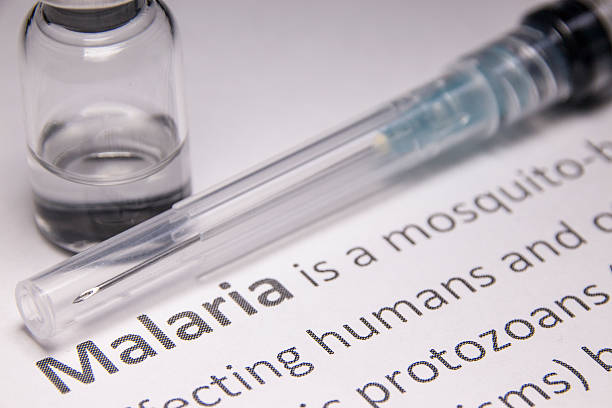MALARIA TREATMENT FAILURE
Malaria is definitely not one to call an exotic ailment, particularly in this region of the world, as sub-Saharan Africa remains the focus of its prevalence in Africa. Nigeria currently suffers the world’s greatest malaria burden with approximately 51 million cases and 207,000 deaths reported annually (approximately 30% of the total malaria burden in Africa), while 97% of the total population (approximately 173 million) is at risk of infection.
Sad to say, but nearly half of the world’s population is at risk of malaria with infants/children under 5 years of age, pregnant women, and patients with HIV/AIDS at the greatest risk.
Malaria is a disease caused by the plasmodium parasite, transmitted by the bite of infected mosquitoes. People often begin to experience symptoms within 10-15 days after the bite from an infected mosquito. Symptoms may include fever, chills, and flu-like illness.
These symptoms usually take shape after the inoculation of an anopheles mosquito undergoes a series of cyclical changes in the liver and thereafter, the bloodstream. The replication process in the bloodstream is what accounts for the physical symptoms we see manifest. If symptoms linger without treatment, it usually progresses to a more complex/severe illness with complications that could possibly lead to death. Although malaria can be a deadly disease, illness and death from malaria can be prevented as iterated by the US CDC.
While prompt attention to treatment plays a significant role in the limitation of malaria complications, other factors surrounding treatment modalities such as drug treatment failure, multidrug resistance, anti-malarial resistance, and the strain of the parasite could tip the balance in favour of treatment failure overall.
As Nigerian physicians we cannot completely turn a blind eye to the growing failure of drug treatment to malaria and the rate of relapse of symptoms even after treatment, hence this conversation. But before I discuss the way out, Let’s define a couple of parameters that would aid our understanding;
DRUG TREATMENT FAILURE: is the inability to clear malaria parasites or prevent a reoccurrence of symptoms even after administration of an antimalarial medicine, regardless of whether clinical symptoms are resolved.
MULTIDRUG RESISTANCE:
MALARIA RESISTANCE IN NIGERIA
Nigeria currently has the highest malaria burden in the world, with 25% of global malaria cases and 24% of all deaths due to malaria as recorded in 2018. Many Nigerians have come to associate malaria with a bitter taste in the mouth, concentrated urine, a cold, cough, and catarrh. While these symptoms often overlap with the common malaria symptoms, it’s important to note that these do not represent malaria independently.
Malaria is a disease caused by the plasmodium parasite, transmitted by the bite of infected mosquitoes. People often begin to experience symptoms within 10-15 days after the bite from an infected mosquito. Symptoms may include fever, chills, muscle aches/joint pain, headache, loss of appetite, and fatigue.
Its nearly impossible to find any Nigerian who has not been treated for malaria ever before because malaria is endemic to this region and as such, it is expected that drugs for treatment would be abused owing to the country’s laxity on drug control.
Unfortunately, the healthcare sector suffered a huge blow in 2005 when a mutant/modified strain of the malaria parasite-infected certain Nigerians and several treatment options such as Chloroquine failed to treat malaria completely. Huge fear and panic loomed large in the face of this roadblock, with the number of complications arising from failed treatment options.
On the flip side, a breakthrough came when research unveiled the Artemisinin Combination Therapy (ACT) that has so far improved the outcome of most cases ranging from mild to severe forms of malaria.
Now, you may wonder why malaria would develop resistance to treatment in a country where it is endemic. It could only happen in countries with no pedigree for handling malaria cases you would say. It sounded quite mysterious to me until I gained knowledge about it. The thing is, every time you take antimalaria drugs indiscriminately or fail to complete the course of your drug treatment as prescribed by your doctor, you move a step closer to a drug (ACT) resistant malaria.
While we continue in this fight to prevent malaria through health education, the use of mosquito nets, and sanitation, I would implore all of us to get used to visiting the hospital or healthcare facility to test if we have malaria before heading to take medications. And even when lab tests show we have malaria, it’s advisable to follow through with all your medications as prescribed by your doctor. This is the only way we can win this war against resistant malaria.

